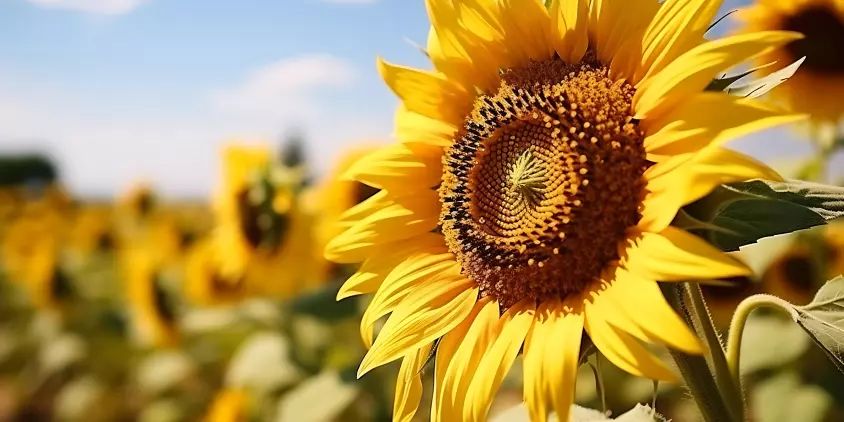No crisis: Sunseed harvest in Bulgaria may break record despite farmers’ complaints

Recent reports in Bulgarian media claimed soaring sunflower oil prices due to a supposedly devastated sunflower harvest, with consumers and processors relying on Ukrainian imports to cover the deficit. However, Preslav Raikov, a Bulgarian trader of vegetable oils and commodities, told Latifundist.com that the situation is far from critical, with the harvest potentially reaching a record 2 million tons thanks to favorable weather and record-high sown areas.
This year, sunflower areas in Bulgaria reached 985,000 hectares, a 6–7% increase compared to last year. Raikov notes that despite isolated losses due to summer heat, weather conditions were generally favorable, with recent rains further boosting crop development. USDA forecasts a 22% year-on-year harvest increase, contradicting claims of “the worst year in history.”
Raikov explains that exaggerated concerns about the harvest are often driven by farmers seeking government subsidies or import restrictions. Meanwhile, processors have adapted to market conditions, investing in flexible production lines capable of processing rapeseed, soybeans, or canola. For instance, last year, Bulgarian plants profitably imported Canadian canola, showcasing greater adaptability than farmers.
Some traders contribute to the crisis narrative to bolster their market positions. Raikov points out that Bulgarian farmers often lack awareness of global market dynamics, unlike their counterparts in Romania or Ukraine, who actively participate in international industry events. This information asymmetry weakens their competitiveness.
The global sunflower seeds market looks stable this season, with Ukraine forecasting 14 million tons, Russia 18 million tons, and other Black Sea countries like Romania and Serbia expecting high yields. Bulgarian farmers relying on high prices through artificial restrictions risk losing competitiveness if they fail to adapt to market realities.
Raikov also highlights the inefficiency of local farmers, who often don’t know their actual production costs and rely on subsidies or protectionism. For example, imported Canadian rapeseed proved cheaper for processors than local supplies, signaling a need for change in production and sales approaches.
Preslav Raikov will be a speaker at the 11th International Conference BLACK SEA OIL TRADE, which will take place on September 23 in Bucharest! Join agribusiness professionals from 25+ countries for a powerful start to the new oilseed season!
Read also
AmSpec – Partner of BLACK SEA GRAIN.KYIV-2026
Romania Emerges as a Strategic Pillar in the EU Rapeseed Supply Shift
Africa’s interest in agro-processing creates an opportunity for Ukraine to develop...
High soybean yields in Brazil pose challenges for the US market
Pakistan faces potential wheat shortage amid war and drought
Write to us
Our manager will contact you soon



